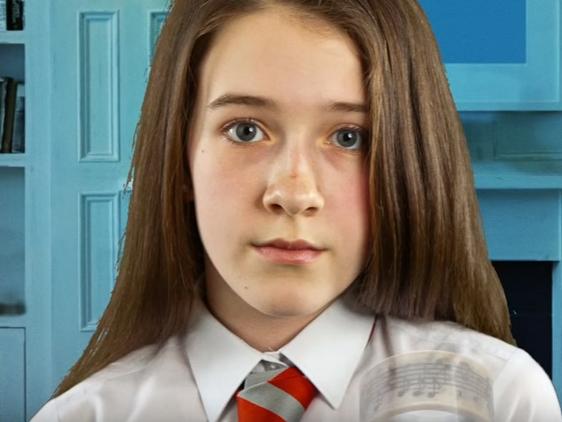Tory MPs attack CBBC show Just a Girl raising awareness of transgender issues
Just a Girl is a fictional audio diary following an 11-year-old called Amy as she joins a new school while undergoing gender reassignment

Two Conservative MPs have been criticised after attacking a CBBC programme raising awareness of transgender issues.
Just a Girl is a fictional audio diary following an 11-year-old called Amy as she joins a new school while undergoing gender reassignment. It was initially aired on the CBBC website in September.
The programme’s synopsis says: "Amy has a secret and she's scared that it will come out at her new school. Follow her as she tries to make sense of the world and not lose her friends forever."
Commenting on the programme, Peter Bone, Conservative MP for Wellingborough told the Mail on Sunday: “It beggars belief that the BBC is making this programme freely available to children as young as six. I entirely share the anger of parents who just want to let children be children.
“It is completely inappropriate for such material to be on the CBBC website and I shall be writing to BBC bosses to demand they take it down as soon as possible.”
Julian Brazier, Conservative MP for Canterbury, said: “This programme is very disappointing and inappropriate. Children are very impressionable and this is going to confuse and worry them.”
The comments, as well as the media coverage surrounding the programme, have sparked a backlash on social media, with users saying it could “increase distress among trans people and their families”.
Trans Pride North, a non-profit organisation providing support for the trans community in the North East and North West of England, said that recent media coverage of Just a Girl was “an attack on trans kids and [CBBC] based simply on the idea that a trans kid telling their own story is wrong.”
Tara Hewitt tweeted: “I wonder how many of Conservative MPs attacking BBC making programme about trans young people have ever had any training on trans issues?”
Commenting on the issue of transphobia against younger people, a Stonewall spokesperson told The Independent: "Transphobic rhetoric concerning young people and their families is toxic and damaging, and unfortunately it still very much exists.
"This makes it even more important that we all stand by the side of trans people as allies."
The BBC said in a statement: “Just a Girl is about a fictional transgender character trying to make sense of the world, deal with bullying and work out how to keep her friends, which are universal themes that any children relate to, and which has had a positive response from our audience.
“CBBC aims to reflect true life to our audience, providing content that mirrors the lives of many UK children as possible – you only have to look at programmes such as The Dumping Ground or our BAFTA-winning and ground-breaking transgender story I am Leo to see that is the case.”
Evidence given by the Gender Identity Research and Education Society (GIRES) last year claimed around 650,000 people – one per cent of the UK population – "are likely to be gender incongruent to some degree" and around 30,000 have sought help for gender dysphoria.
It added that referrals to NHS Gender Identity Clinics (GIC) are rising by 20 per cent each year, while in the child and adolescent services (Tavistock gender identity development service) annual referrals are doubling.
More than 1,400 young people were referred to the Tavistock Centre in London in 2016.
Research on transgender identity and gender dysphoria first began in the 1970s and started out trying to help children become comfortable with their biological sex rather than allowing them to transition.
Today young people may have access to hormone treatments to delay puberty until they know which gender they wish to live in as an adult, as well as non-hormone based treatments such as chest binding.
The NHS defines gender dysphoria as "a condition where a person experiences discomfort or distress because there's a mismatch between their biological sex and gender identity".
Join our commenting forum
Join thought-provoking conversations, follow other Independent readers and see their replies
0Comments